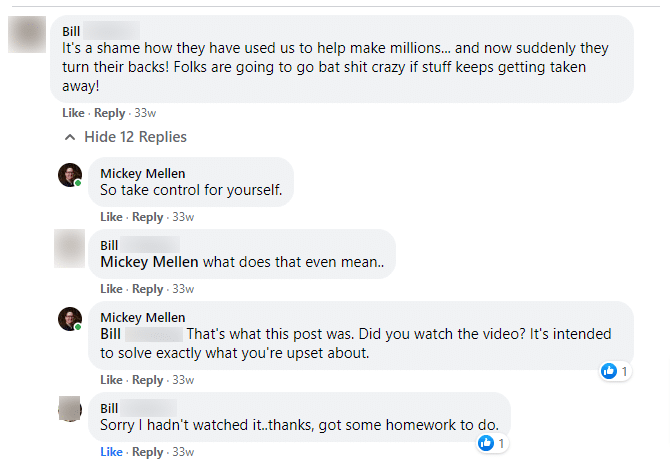Social media is often filled with memes and information that are just flat-out incorrect. Most of it comes from one type of sharing: “That fits my viewpoint, so I’ll pass it along!“. Truth becomes secondary to speed.
That’s not to say you shouldn’t share things that you agree with, but taking a moment to verify that accuracy of them can be helpful. Manu Moreale has three rules for sharing anything, and I think they’re a good place for most people to start.
1. Read or watch the entire thing before sharing it
I’ve seen this a few times, where someone will leave a comment on an article that they clearly didn’t take the time to read. NPR used that to their advantage a few years ago with a brilliant prank that got people to leave lots of comments about an article that didn’t even exist.
Another good example was a Facebook post I published earlier this year; the first response from “Bill” was very passionate, but confusing, and he admitted to just looking at the title and going for it.

Twitter has even done experiments to try to force users to read a story before passing it along, though with rather disappointing results.
2. Wait at least a minute after I’m done consuming content before sharing it
Manu’s next thought is perhaps a little more difficult. Just pause for a minute, take a breath, and then decide if you should share it or not. This is along the lines of my “Take a minute” post from last year, but Manu’s thought is more about just taking a minute for yourself to process and decide, which can be very beneficial.
3. Ask myself if this is something I’d like to receive
This last rule gets even trickier, and I think most people already follow it… sort of.
If someone shares a post that is wildly offensive, it still might pass muster because the person sharing it would certainly be happy to receive it as well (and they likely just did, which led to them sharing it). I think Manu’s point goes a bit toward empathy, and thinking if what you share would be of value to your larger network. That’s not to say everyone should agree with it (disagreements can be a good thing), but being civil is something we should all aspire to and avoiding dehumanizing words and concepts is a good step toward that.
Whether you want to follow those rules is obviously completely up to you. Manu does, I’ve done roughly the same thing myself (and appreciate his clarity with these rules), and they’re good things to consider the next time you find that great piece that you think is worth sharing.



